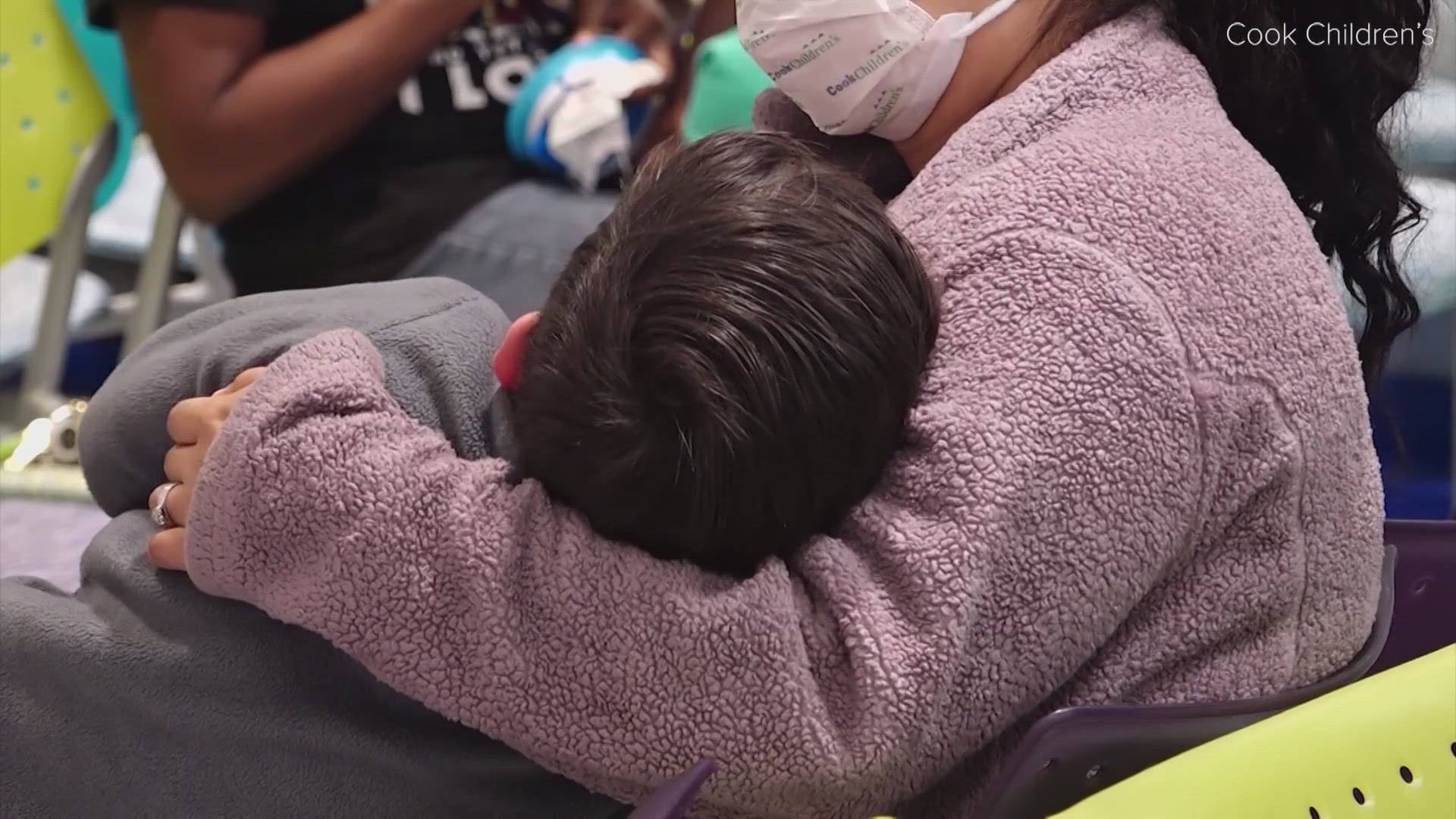FORT WORTH, Texas — Doctors across North Texas are seeing high numbers for the start of the cold and respiratory season.
Now, they are concerned about how holiday family gatherings will impact cases this year.
Dr. Laura Romano at Cook Children's Health System in Fort Worth warns not to let this year's cold and respiratory season ruin your holiday gatherings. It's something she knows about firsthand.
"My father is over 70 years old. He has type 1 diabetes and rheumatoid arthritis. We accidentally gave him an RSV one year, and my son gave it to him," said Romano.
Romano earned her degree in biochemistry and molecular biology from Penn State University before attending medical school. She completed her pediatric residency at The Women and Children's Hospital of Buffalo, New York before joining the pediatric staff more than five years ago at Cook Children's Medical Center.
As a pediatrician and parent herself, Romano warns parents that RSV and flu symptoms could start with a lingering cough. If over-the-counter medicines don't help shorten those illnesses, there are other symptoms Romano tells parents to look out for.
"We are telling them to be on the lookout for difficulty breathing," Romano said. "We are telling them to be on the lookout for fevers that are not going away with Tylenol or Motrin, and any signs of dehydration."
Romano has concerns about the cold and respiratory season because just like last year, they saw a spike in cases presumably connected to family gatherings like her own.
Data compiled by respiratory diseases year-over-year helps them prepare and predict what to expect. For example, from the week of Nov. 26 to Dec. 3, RSV cases in Fort Worth dropped slightly from 350 cases to about 325, but flu cases rose from about 50 cases to more than 100 cases, all in one week.
Dr. Preeti Sharma is a pediatric pulmonologist at Children's Health and also serves as an associate professor at UT Southwestern. She closely watches the trends of case numbers during the cold and respiratory season in the Dallas area and across North Texas.
"This is the time of year, seems like everyone has got a cough, sniffle, or a fever," said Sharma.
This year's holiday season already has Sharma concerned after looking at the trends so far, but she's optimistic since there are ways for parents and families to protect themselves from RSV, flu and COVID-19.
Data from Children's Health shows from the week of Nov. 26 to Dec. 3, RSV cases spiked at 493 and dropped to 378. Flu, however, almost doubled from 88 to 157, and COVID-19 from 54 to 70 cases. Sharma said prevention includes getting vaccinated for flu and COVID-19 before your family gathering.
As far as access to the RSV vaccine, in most cases, physicians are prioritizing people in high-risk categories as patients who need it most.
"That's been remarkably challenging to access for most families because of the nationwide shortage," said Sharma.
When it comes to people planning get-togethers over the holiday season, doctors suggest you use at-home COVID tests. Romano stressed as hard as it may be, don't hesitate to ask family and friends to skip the holiday gathering if they are not feeling well.
"What we're recommending is if you're sick, please stay home. I know it's hard to miss holidays. I know we all want to be together for Christmas and Thanksgiving and New Year's and Hanukkah and Kwanzaa and whatever your family celebrates. But if you're sick, please stay home," Romano said. "You don't know who your child is going to see the next day."
Both Romano and Sharma suggest families with people who are in high-risk health categories check with their doctors about obtaining the RSV vaccine, despite the nationwide shortage right now.

